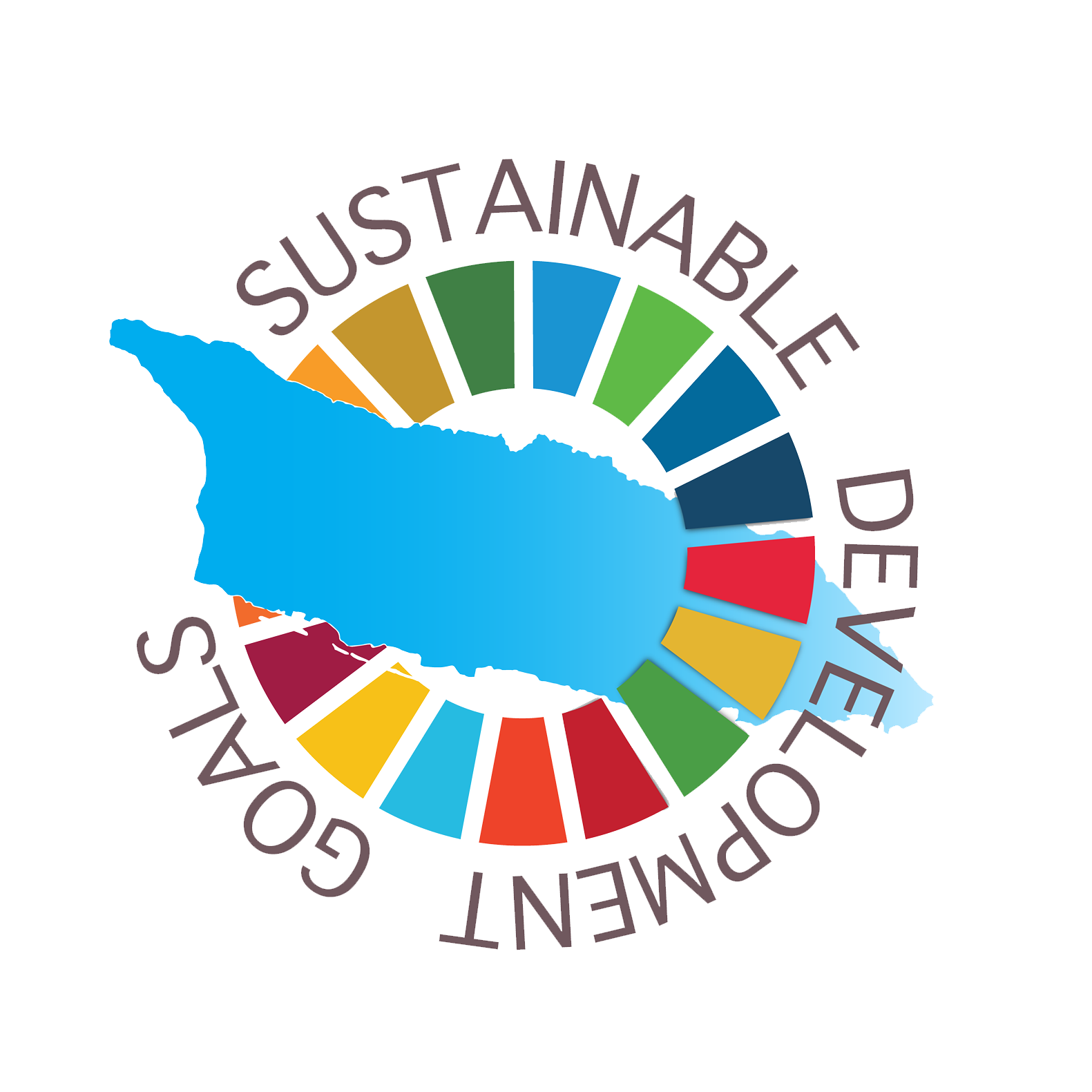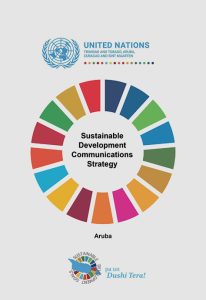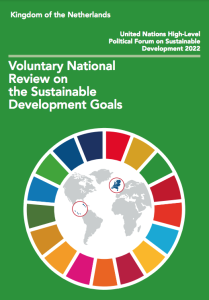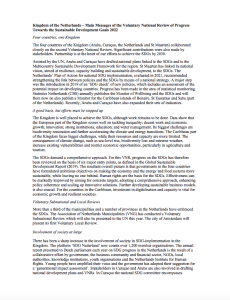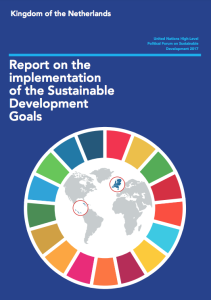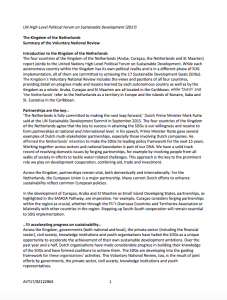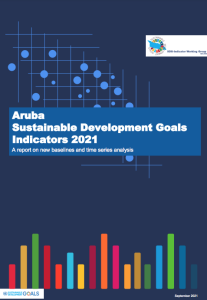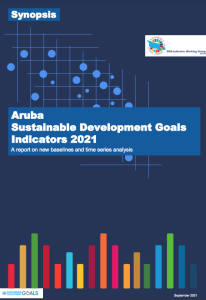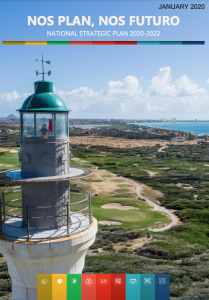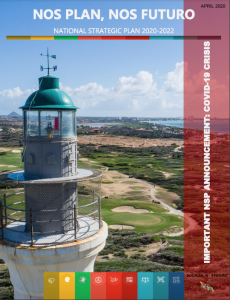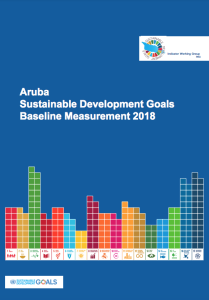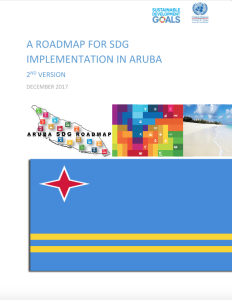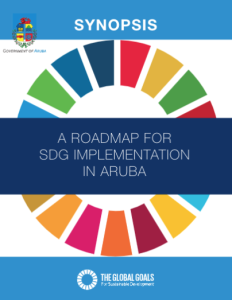Documents
Voluntary National Review
As part of its follow-up and review mechanisms, the 2030 Agenda for Sustainable Development encourages member states to conduct regular and inclusive reviews of progress at the national and sub-national levels, which are country-led and country-driven. The voluntary national reviews (VNRs) aim to facilitate the sharing of experiences, including successes, challenges and lessons learned, with a view to accelerating the implementation of the 2030 Agenda. The VNRs also seek to strengthen policies and institutions of governments and to mobilize multi-stakeholder support and partnerships for the implementation of the Sustainable Development Goals.
The four countries of the Kingdom of the Netherlands (Aruba, Curaçao, the Netherlands and Sint Maarten) report jointly to the United Nations High-Level Political Forum on Sustainable Development.
IWG SDG Data report 2021
The SDG-indicator Working Group produced the report Aruba Sustainable Development Goals Indicators 2021, which gives an overview of new baselines, available time series of existing indicators on Aruba, and the analyses of trends relating to the SDGs. The data presented has been collected from a variety of data sources; administrative data sources, yearly and occasionally held surveys and Population and Housing Censuses.
The trend analysis provides information for monitoring of progress and it helps to set concrete national targets. This report shows that considerable data exists to aid policy formulation and to set national targets. Moreover, this report gives insights into the development in the different areas related to the SDGs and is key to assist policy makers in Aruba in the monitoring of different areas related to Sustainable Development.
National Strategic Plan 2020
The National Strategic Plan (NSP), Nos Plan, Nos Futuro, prepared in January 2020, is a long-term plan with a vision for 2030 to implement the Sustainable Development Goals (SDGs) in Aruba. In order to focus on the strategies needed for the achievement of the SDGs in 2030 a medium term plan has been developed for 2020-2022, with the involvement of Expert Working Groups (EXWGs) representing the public and the private sector, NGOs and academia.
When the COVID-19 pandemic hit Aruba in March 2020, the implementation of the actions of the NSP 2020-2022 needed to be adapted to focus on the most urgent actions for the next three years. A three-track (ABC) approach of the UNDP Policy for Post-Conflict Employment Creation, Income Generation and Reintegration of 2009 was used to prioritize the actions. The COVID-19 priority list was created to reflect the NSP actions that could be implemented related to the crisis. This resulted in the NSP-COVID-19 Note
IWG SDG Data report 2018
The SDG-indicator Working Group produced the report Aruba Sustainable Development Goals Indicators 2018, a first report that provides insights on various SDG indicators and baselines. This report is groundbreaking as it collects data from different public data producing departments and distills these in a sustainable development overview. Although Aruba already produces significant data in many areas, there is still the challenge on how to address the data gaps
Roadmap for SDG Implementation in Aruba 2018
The Aruba SDG Roadmap is a document that provides direction to Aruba for the implementation of the Sustainable Development Goals (SDGs) at the national level. It is developed according to guiding principles stipulated by the United Nations Development Group (UNDG) as the aim of the SDGs are to assist countries in their development agenda and set priorities where the focus is on enhancing the quality of life for all citizens and ensuring that No One is Left Behind.
